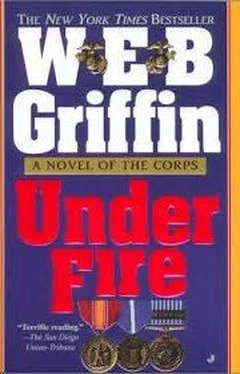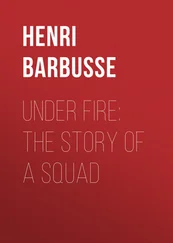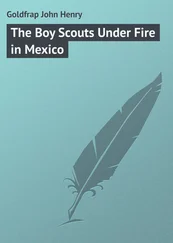Griffin W.E.B. - The Corps 09 - Under Fire
Здесь есть возможность читать онлайн «Griffin W.E.B. - The Corps 09 - Under Fire» весь текст электронной книги совершенно бесплатно (целиком полную версию без сокращений). В некоторых случаях можно слушать аудио, скачать через торрент в формате fb2 и присутствует краткое содержание. Год выпуска: 0101, Жанр: Старинная литература, на английском языке. Описание произведения, (предисловие) а так же отзывы посетителей доступны на портале библиотеки ЛибКат.
- Название:The Corps 09 - Under Fire
- Автор:
- Жанр:
- Год:0101
- ISBN:нет данных
- Рейтинг книги:5 / 5. Голосов: 1
-
Избранное:Добавить в избранное
- Отзывы:
-
Ваша оценка:
- 100
- 1
- 2
- 3
- 4
- 5
The Corps 09 - Under Fire: краткое содержание, описание и аннотация
Предлагаем к чтению аннотацию, описание, краткое содержание или предисловие (зависит от того, что написал сам автор книги «The Corps 09 - Under Fire»). Если вы не нашли необходимую информацию о книге — напишите в комментариях, мы постараемся отыскать её.
The Corps 09 - Under Fire — читать онлайн бесплатно полную книгу (весь текст) целиком
Ниже представлен текст книги, разбитый по страницам. Система сохранения места последней прочитанной страницы, позволяет с удобством читать онлайн бесплатно книгу «The Corps 09 - Under Fire», без необходимости каждый раз заново искать на чём Вы остановились. Поставьте закладку, и сможете в любой момент перейти на страницу, на которой закончили чтение.
Интервал:
Закладка:
"It would appear General Cates got what he wanted, wouldn't it?" the President said. "I'll keep that unhappy statistic in mind, along with many others."
Neither Howe nor Pickering replied.
"McCoy gave a briefing to these two officers?" Truman asked.
"And to me, sir. I thought it was brilliant."
"I'd like to hear it," Howe said. "Can you do that for me, Captain?"
"Yes, sir," McCoy said.
"Not tonight," Truman said. "We have other things to talk about tonight, Ralph."
"Where can I find you in the morning, McCoy? Say about eight?" Howe asked.
"I'm here in the hotel, sir. But if you'll tell me where-"
"The hotel's fine. I'm staying here myself. Where are you? With General Pickering?"
"No, sir. I'm in the American Personal Pharmaceuticals suite."
"The American Personal Pharmaceuticals suite?" Howe asked, with a smile.
"He's like you, Ralph, he doesn't need the job, he just likes the uniform," Truman said, and immediately added: "I shouldn't have said that, I suppose. I meant it admir-ingly."
"I'll call you at eight, Captain," General Howe said.
"Aye, aye, sir."
"Ralph, why don't you walk down the corridor with General Pickering, and deliver a message from me to Mrs. Pickering?"
"What message, Harry?"
"His recall to active duty was my idea, not his."
"I'll be happy to."
"Thank you both," the President said. "I hope there will be a chance to see you both again before you go over there."
He went to the door and shook the hands of both men as they went through it.
Chapter Seven
[ONE]
OFFICE OF THE DEPUTY COMMANDING GENERAL
CAMP PENDLETON, CALIFORNIA
1305 JULY 1950
Brigadier General Clyde W. Dawkins, USMC, was an-noyed-and his face showed it-when the telephone on his desk buzzed. He was in conference with Brigadier General Edward A. Craig, USMC, who until two days before had been Deputy Commanding General, 1st Marine Division, and was now Commanding General, 1st Marine Provi-sional Brigade, and he had, he thought, made it clear to Captain Arthur McGowan, USMC, his aide-de-camp, that he didn't want to be disturbed.
"Sorry," he said to Craig, a tall, lean officer beside him, a tanned man in his early fifties who wore his thick silver hair in a crew cut, and reached for the telephone.
"Sir, it's the Commandant," Captain McGowan an-nounced.
"General Dawkins, sir."
"Dawkins," the Commandant of the U.S. Marine Corps said, without any preliminaries, "this is a heads-up on an Urgent TWX you're about to get from the JCS. In essence, it says by Direction of the President, Brigadier General Fleming Pickering, USMCR, will shortly be in San Diego. Give him whatever he wants, and tell him anything he wants to know."
"Yes, sir?" General Dawkins said.
"Do just that, Dawkins. Give him whatever he wants and tell him anything he wants to know."
"Aye, aye, sir."
General Dawkins waited for the Commandant to con-tinue. And continued to wait until a dial tone told him that the Commandant, having said all he wished to say, had ter-minated the conversation.
Dawkins put the phone back in the cradle and mused, aloud, "I wonder what the hell that's all about?"
"What what's about?"
"That was the Commandant. I'm about to get an Urgent TWX from the JCS informing me that Brigadier General Fleming Pickering is coming here, and I am to give him whatever he asks for and tell him anything that he wants to know."
"Pickering?"
"He was on Guadalcanal, G-2 for a while when Goettge got killed..."
Craig nodded, indicating he knew who Dawkins was talking about.
"And the last I heard got out of the Corps the minute the war was over."
"What's he want here?"
"I have no idea. Whatever it is, it's Direction of the Pres-ident," Dawkins said.
Craig pursed his lips thoughtfully, and then both men re-turned to the most pressing problems involved in forming, organizing, and equipping a provisional Marine brigade under orders to sail within ten days.
[TWO]
U.S. NAVY/MARINE CORPS RESERVE TRAINING
CENTER
ST. LOUIS, MISSOURI
1920 5 JULY 1950
Captain George F. Hart pulled his nearly new unmarked blue Chevrolet into a parking slot behind the building, stopped, and reached for the microphone mounted under the dash.
"H-l," he said into it.
Hart was thirty-two years old, nearly bald, and built like a circus strong man.
"Captain?" Dispatch responded. H-l was the private call sign of the Chief, Homicide Bureau, St. Louis Police De-partment. Dispatch knew who he was.
"At the Navy Reserve Training Center until further no-tice."
"Navy Reserve Training Center, got it."
"You have the number?"
"I think so."
" `Think' don't count. Know. Check."
"Yes, sir," the dispatcher said, his tone suggesting he didn't like Captain Hart's tone.
"I have the number, Captain," the dispatcher said, and read it off.
"That's it," Hart said.
"Yes, sir," the dispatcher said.
Hart put the microphone back in its bracket, turned the engine off, got out of the car, went in the backseat and took from it a dry cleaner's bag on a hanger, locked the car, and then entered the building through a rear door to which he had a key.
He often thought the U.S. Navy/Marine Corps Reserve Training Center looked like a high school gymnasium without the high school.
The ground floor was essentially a large expanse of var-nished wooden flooring large enough for two basketball courts, and there were in fact two basketball courts marked out on the floor, their baskets now retracted up to the roof. At one end of the floor was the entrance, and at the other rest rooms, and the stairway to the basement, which held lockers and the arms room.
On one side of the floor were the glass-walled offices of the Naval Reserve, and on the other, the glass-walled of-fices of the Marine Corps Reserve.
Hart unlocked the door with "COMMANDING OFFI-CER" lettered on the glass, then closed it, locked it, and checked to see that the Venetian blinds were closed. One was not, and he adjusted it so that no one could see into his office.
His office was furnished with a desk, a desk chair, two straight-back chairs, two chrome armchairs, a matching couch, and a double clothing locker.
He unlocked the doors to both, then started getting un-dressed. First he took off his jacket, which revealed that he was wearing a shoulder holster. The holster itself held a Colt Model 1911.45 ACP semiautomatic pistol under his left armpit. Under his right armpit, the harness held two spare seven-round clips for the pistol, and a pair of hand-cuffs.
So far as Captain Hart knew, he was the only white shirt in the department who elected to carry a.45. Only white shirts-lieutenants and higher; so called because their uni-form shirts were white-were allowed to carry the weapon of their choice. Sergeants and below were required to carry the department-issued handgun, either Smith and Wesson or Colt.38 Special five-inch-barrel revolvers. Plainclothes cops and detectives were required to carry two-inch-barrel.38 Special revolvers.
When Hart had come home from World War II to be-come a detective again, he had ignored that regulation, and carried a.45. As a detective, he had shot two people with a.38 Special, neither of whom had died, and one of whom, despite being hit twice, had kept coming at him until he hit him in the head with the pistol butt. The people he had shot in the Corps with a.45 had gone down and stayed down, usually dead. He had decided that he would rather explain to an investigating board how come he had shot some scumbag with a.45 rather than the prescribed.38 Special than have a police department formal funeral ceremony and his picture hung on the wall in the lobby of police headquarters.
Читать дальшеИнтервал:
Закладка:
Похожие книги на «The Corps 09 - Under Fire»
Представляем Вашему вниманию похожие книги на «The Corps 09 - Under Fire» списком для выбора. Мы отобрали схожую по названию и смыслу литературу в надежде предоставить читателям больше вариантов отыскать новые, интересные, ещё непрочитанные произведения.
Обсуждение, отзывы о книге «The Corps 09 - Under Fire» и просто собственные мнения читателей. Оставьте ваши комментарии, напишите, что Вы думаете о произведении, его смысле или главных героях. Укажите что конкретно понравилось, а что нет, и почему Вы так считаете.










